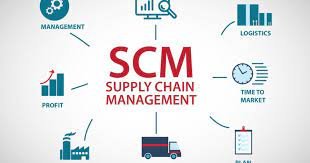Supply Chain Executive

In the intricate web of global commerce, where goods and services traverse continents at lightning speed, the role of the supply chain executive has emerged as one of paramount importance. Charged with orchestrating the movement of raw materials, components, and finished products from point of origin to consumer, these executives stand at the helm of an ever-evolving landscape of challenges and opportunities.
The Evolution of Supply Chain Management:
Gone are the days when supply chain management merely involved the physical movement of goods from factories to warehouses to retail shelves. Today, it encompasses a complex network of suppliers, manufacturers, distributors, retailers, and end consumers, all interconnected through intricate logistics and information systems.
The advent of globalization, coupled with advancements in technology, has transformed supply chain management into a strategic function critical to the success of businesses across industries. In this dynamic environment, the supply chain executive plays a pivotal role in optimizing processes, minimizing costs, and enhancing efficiency while simultaneously ensuring resilience and agility to navigate unforeseen disruptions.
The Responsibilities of a Supply Chain Executive:
At the heart of the supply chain executive’s role lies the responsibility to synchronize the various elements of the supply chain to meet customer demands efficiently and cost-effectively. This involves a multifaceted approach encompassing:
- Strategic Planning: Supply chain executives are tasked with developing and implementing strategic plans aligned with the organization’s objectives. This includes optimizing sourcing strategies, managing supplier relationships, and designing distribution networks to maximize efficiency and minimize costs.
- Process Optimization: Continuous improvement is a cornerstone of supply chain management. Supply chain executives are responsible for identifying bottlenecks, streamlining processes, and implementing best practices to enhance operational efficiency and drive cost savings.
- Risk Management: From natural disasters to geopolitical tensions, the modern supply chain is fraught with risks. Supply chain executives must proactively identify potential disruptions and develop robust contingency plans to mitigate their impact, ensuring business continuity in the face of adversity.
- Technology Integration: In an era dominated by digitalization, leveraging technology is essential for optimizing supply chain operations. Supply chain executives are tasked with evaluating and implementing cutting-edge technologies such as artificial intelligence, blockchain, and Internet of Things (IoT) to enhance visibility, traceability, and collaboration across the supply chain ecosystem.
- Collaboration and Relationship Management: Collaboration is key to success in supply chain management. Supply chain executives must foster strong relationships with suppliers, logistics partners, and other stakeholders to drive innovation, resolve conflicts, and capitalize on synergies for mutual benefit.
- Performance Monitoring and Analysis: Data-driven decision-making is fundamental to effective supply chain management. Supply chain executives leverage analytics tools to monitor key performance indicators (KPIs), identify trends, and glean insights that inform strategic initiatives and drive continuous improvement.

The Skill Set of a Supply Chain Executive:
To excel in this multifaceted role, supply chain executives must possess a diverse skill set that encompasses both technical expertise and soft skills. Key competencies include:
- Analytical Skills: The ability to analyze complex data sets, identify patterns, and derive actionable insights is essential for effective decision-making in supply chain management.
- Strategic Thinking: Supply chain executives must possess strategic vision and the ability to anticipate market trends, anticipate risks, and develop innovative solutions to drive competitive advantage.
- Communication and Negotiation: Effective communication skills are crucial for building strong relationships with stakeholders and navigating complex negotiations with suppliers, customers, and partners.
- Leadership and Team Management: Supply chain executives must inspire and motivate cross-functional teams to collaborate effectively towards common goals, fostering a culture of continuous improvement and excellence.
- Adaptability and Resilience: In a rapidly evolving business environment, supply chain executives must be adaptable and resilient, capable of navigating uncertainty and effectively managing change.
- Ethical Conduct: Given the global nature of supply chains, ethical conduct and social responsibility are increasingly important considerations. Supply chain executives must ensure compliance with regulations, promote sustainability, and uphold ethical standards throughout the supply chain.
The Future of Supply Chain Management:
As we look to the future, the role of the supply chain executive is poised to become even more critical. Rapid technological advancements, shifting consumer preferences, and geopolitical uncertainties will continue to reshape the supply chain landscape, presenting both challenges and opportunities.
Supply chain executives must embrace innovation, harnessing the power of emerging technologies to drive efficiency, agility, and sustainability across the supply chain. They must also prioritize talent development, cultivating a skilled workforce equipped with the knowledge and expertise to navigate the complexities of the modern supply chain.
In conclusion, the supply chain executive serves as the linchpin of modern business, orchestrating the seamless flow of goods and information across the global marketplace. With the right blend of strategic vision, technical acumen, and leadership skills, supply chain executives are well-positioned to drive innovation, create value, and propel their organizations to new heights of success in the dynamic world of commerce.
